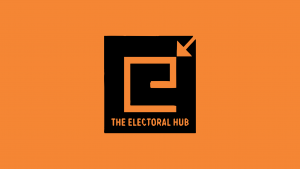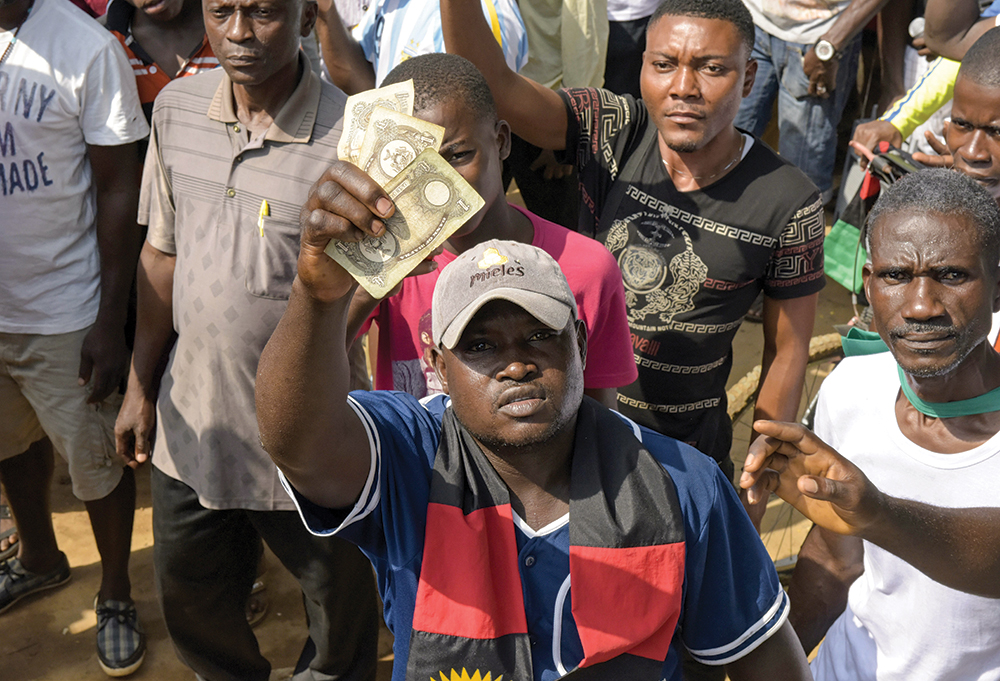The cream of the electoral management intelligentsia in Nigeria is pushing a recommendation that a key contender in the 2023 presidential poll is sure to harvest to its narrative advantage. It will be a classic of the law of unintended consequence.
The recommendation coming from a Policy Dialogue of The Electoral Forum is asking civil society organisations, (CSOs) and other mass-based groups to “consider riding on the “We no dey pay shishi” momentum generated by one of the political parties to engage more with Nigerians before and after the 2023 elections.
The Policy Dialogue thinks this recommendation is one sure way of containing the vote trading (buying and selling) culture plaguing electoral sanity in Nigeria. Although the brain masters behind the recommendation are saying that Vote trading (buying and selling) is a global phenomenon, they nevertheless argue that the phenomenon has a peculiarly Nigerian ring to it, with Nigeria becoming “a huge vote market, where ‘wholesale’, ‘middlemen’ and ‘retail’ vote-buying (and lately vote-selling) are a common feature”.

And there are those who are bought in Naira, the national currency
That is, unlike in the more developed countries of North America and Europe where vote trading has been largely contained, this is not the case in most developing countries where the level of poverty is high even as the brain masters assert that even in some African countries such as Namibia, Botswana, Senegal, the practice is not as boldly and loudly done as in Nigeria.
This, they put at the foot of politicians said to engage in monetised horse-trading (for bloc votes), to the middle-men who engage in top-to-bottom vote trading, declaring that “it is a mercantilised electoral ecosystem”.
The communiqué from the Dialogue Session insists that politicians have lately raised the stakes of money in politics, mentioning how the political party primary elections became “so ‘dollarized’ that delegates have turned millionaires overnight”. Citing Ekiti and Kano as spaces of utter desperation of politicians, it drew attention to how the voter’s cards (PVCs) went as high as N10,000 and N20,000. This is where politicians are not seen digging community bore-holes, scholarship schemes, empowerment schemes a few weeks to a particular election as National Assembly and State House of Assembly members ingratiate themselves with citizens who daily flock to their constituency offices seeking handouts.

Two of the presidential contenders in the 2023 bout but who are held in popular psychology to be the masterminds of dollarisation. Guilty or not guilty?

Peter Obi, the one who proclaims himself as the anti-thesis of vote buying
Contending that Vote trading leads to the emergence of low-quality and questionable leaders and that previous attempts by INEC to tackle the issue of money in politics have not been successful because moneybags have been cleverer, the participants concluded it is time the political parties are brought under constant sensitisation and reorientation to wean them off the present craze for power after having been left too long to their own devices. But the Communiqué did not forget to remind members of the political class and those in political leadership positions of the imperative of seeing it “as an article of faith to create a society where the citizenry is economically empowered and free to make voting choices”.
Beyond the CSOs, the Dialogue Session is equally asking the National Assembly, the Police, the DSS and the EFCC to step in towards ensuring that standards and knowledge should become the hallmarks of the political leadership and governance space through auditing “the lifestyle and wealth of political office aspirants in order to stop those who have links to corruption and unaccounted wealth”.
Turning on itself along the line, the Dialogue Session notes how herculean a task tackling vote trading will remain as long as most Nigerians are living below the poverty level due to failure of leadership or/and faulty developmental strategies. For this, it finds the most effective way of reducing vote trading to the barest minimum to be for political leaders to empower citizens economically and consequently imbue in them the freedom of choice.

Is it too early to thanks the organisers of the Dialogue Session for a job well started?
Forum members include Hajia Amina Zakari, former INEC National Commissioner and Acting Chairperson, Professor Antonia Taye Simbine, DG, NISER, and former INEC National Commissioner, Kassim Gaidam, former INEC REC Adamawa State, Gloria Ukpong, former Chairperson AKSIEC, Hannatu Biniyat Usman, former Chairperson KADSIECOM, Ademola E. Johnson, former INEC Deputy Secretary, Okechukwu Ndeche and Alhaji Lawal Isa Wase, former INEC Directors, Mike Asukwo of Business Day, and Everest Amaefule formerly of The Punch Newspapers as well as Professor Olatunde Babawale, Provost Anticorruption Academy and Dr. Kole Shettima, Africa Director, MacArthur Foundation.
The Policy Dialogue also featured respectable speakers and discussants drawn from different sectors, notably Obo Effanga, immediate past INEC Resident Electoral Commissioners (REC) Rivers State/ REC nominee; Professor Babatunde Lawal: Provost, Anti-corruption Academy and member of Electoral Forum; Professor Mike Ushie, Secretary FOSIECON; Professor Irene Pogosson, Head of Department, Political Science, University of Ibadan; Hon. Babatunde Osibode, Chairman of Ogun State Independent Electoral Commission (OGSIEC) and Tari Oliver, 2023 PDP presidential aspirant, and Women Inclusion Advocate.
The Executive Secretary of the National Human Rights Commission, Sir Anthony Ojukwu, (SAN) gave the opening remarks while Goodwill messages were given by Deputy Senate President Ovie Omo-Agege; INEC Chairman; Chairperson, House Committee on INEC, Hon. Ayisha Dukku; Chairman ICPC, Professor Bolaji Owasanoye, (SAN); Hon. Fabian Ntung, Chairman, Forum of State Independent Electoral Commissions of Nigeria (FOSIECON)and the Executive Director, Centre for Journalism Innovation and Development, Dr. Tobi Oluwatola.
The Executive Secretary of the National Human Rights Commission, Sir Anthony Ojukwu, (SAN) gave the opening remarks while Goodwill messages were given by Deputy Senate President Ovie Omo-Agege; INEC Chairman; Chairperson, House Committee on INEC, Hon. Ayisha Dukku; Chairman ICPC, Professor Bolaji Owasanoye, (SAN); Hon. Fabian Ntung, Chairman, Forum of State Independent Electoral Commissions of Nigeria (FOSIECON)and the Executive Director, Centre for Journalism Innovation and Development, Dr. Tobi Oluwatola.
With elections in February 2023, the recommendation on vote trading is capable of being discursively articulated into a winning mantra, especially by the Labour Party which can claim affirmation of its wisdom in the ‘shishi’ narrative. Unfortunately, much of (electioneering) campaigning in Nigeria is quantitative, negativist and abusive rather than systematic and textually imaginative or ambitious.




























